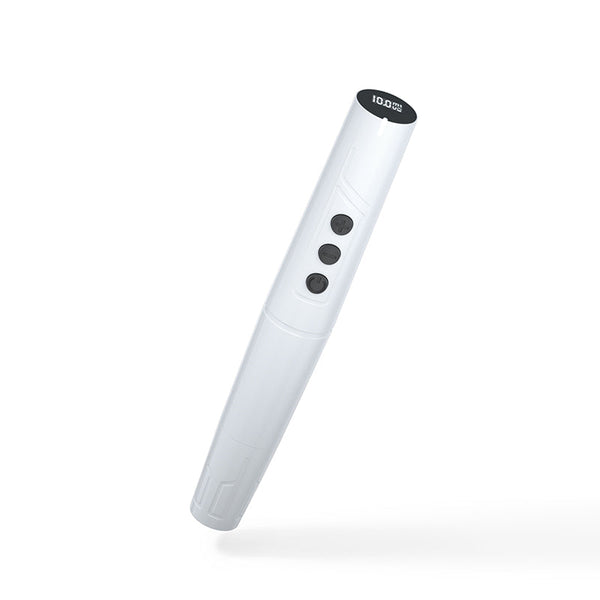Unlock the Secrets: Essential Supplies and Expert Tips for Stunning Tattoo Care!
Getting a new tattoo is an exciting experience, but it comes with a responsibility that goes beyond just the design. Proper tattoo care is crucial to ensuring that your ink stays vibrant and heals well. The initial tattoo care supplies you choose can significantly impact the healing process and the overall appearance of your new artwork. Using the right products not only helps prevent infections but also aids in maintaining the colors and details of your tattoo for years to come. This article will guide you through the essential supplies you need and offer valuable tips for caring for your new tattoo effectively.

Understanding Initial Tattoo Care Supplies
When it comes to taking care of your new tattoo, having the right supplies on hand is the first step toward a smooth healing process. The basic supplies you’ll need include a gentle cleanser, a moisturizer, and protective coverings. A gentle, fragrance-free cleanser is vital for cleaning the tattooed area without causing irritation. Look for products that are designed for sensitive skin to avoid any adverse reactions.
Moisturizers play a crucial role in keeping the skin hydrated and helping the tattoo heal properly. Ointments or lotions that are specifically formulated for tattoo care can keep the skin from becoming too dry, which can lead to scabbing and fading of the ink. Lastly, protective coverings such as plastic wrap or specialized bandages help keep the tattoo safe from dirt and bacteria during the initial healing period. Each of these items is essential for ensuring your tattoo heals beautifully and remains vibrant.
Step-by-Step Guide to Tattoo Aftercare
Caring for a new tattoo involves a few simple but essential steps. First, once you’ve removed the initial bandage (as advised by your tattoo artist), gently wash the tattoo with a mild, fragrance-free cleanser and lukewarm water. Use your fingertips to clean the area; avoid using a washcloth or sponge, as these can harbor bacteria.
After cleansing, pat the area dry with a clean towel—never rub, as this can irritate the skin. Once the tattoo is dry, apply a thin layer of your chosen moisturizer or ointment. It’s essential to use only a small amount; over-applying can suffocate the tattoo and lead to complications. Repeat this process two to three times a day for the first couple of weeks, or until the tattoo has fully healed.
Daily Care Routine
Establishing a daily care routine is vital for your tattoo's healing. Start by washing the tattoo once in the morning and once before bed. Always wash your hands before touching your tattoo to minimize the risk of infection. After each wash, apply a thin layer of moisturizer to keep the area hydrated. Pay attention to any signs of irritation or infection—if you notice increased redness, swelling, or discharge, consult a healthcare professional immediately.
Avoid tight clothing over the tattooed area, as friction can cause irritation. Additionally, make sure to stay out of pools, hot tubs, and any body of water until the tattoo is fully healed to prevent exposure to bacteria.
Common Mistakes to Avoid
While caring for a new tattoo might seem straightforward, there are several common mistakes that can hinder the healing process. One of the biggest errors people make is over-washing the tattoo. While cleanliness is essential, excessive washing can strip the skin of its natural oils and lead to dryness, which can cause the tattoo to fade prematurely.
Another mistake is applying too much moisturizer. While keeping the tattoo hydrated is crucial, slathering on thick layers can clog pores and prevent the skin from breathing, leading to complications. Additionally, avoid picking at scabs or peeling skin, as this can result in uneven healing and loss of ink. Lastly, be cautious about sun exposure; UV rays can damage the skin and fade your tattoo faster than you might think. Always cover your tattoo or use a high-SPF sunscreen once it has healed to protect your investment.
Expert Tips for Optimal Healing
In addition to following the basic care routine, there are several expert tips that can enhance your tattoo healing process. Staying hydrated is one of the best things you can do for your skin; drinking plenty of water promotes overall skin health and aids in healing. Moreover, maintaining a healthy diet rich in vitamins can also support skin regeneration.
Avoiding excessive sun exposure during the healing phase is crucial. If you must go out in the sun, wearing protective clothing or a broad-brimmed hat can help shield your tattoo. Once healed, using a sunscreen specifically designed for tattoos will help preserve the vibrancy of your ink for years to come. Lastly, listen to your body; if you feel discomfort or notice any unusual changes, don’t hesitate to reach out to your tattoo artist or a medical professional for advice.
Ensuring Vibrant and Long-Lasting Tattoos
In summary, proper tattoo care is essential to ensure that your new ink remains stunning and well-preserved. By understanding the initial tattoo care supplies necessary for the healing process and adhering to a consistent aftercare routine, you can significantly enhance the longevity of your tattoo. Avoiding common mistakes and following expert tips will further ensure that your tattoo not only heals well but also continues to look vibrant for years to come. Remember, the effort you put into caring for your tattoo will reflect in its appearance, so take the time to invest in proper care and enjoy your beautiful new artwork!








